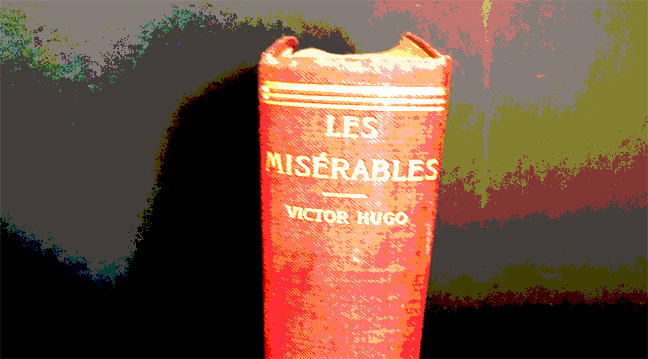by Eulis Campbell, Prison Journalism Project
From Dostoevsky to Camus, my reading life has given me something to live for
For the past 18 years, I’ve spent my life in a cell, wondering how I can leave this wretched place.
Many years ago, I began a journey of escape, one that has taken me on fabulous expeditions around the globe. I call this my “Great Books” reading program. It has changed my life.
In prison you possess time — loads of it — to think, digest and dissect your life and your offense. Punishment isn’t merely dealt by the court system alone. The psyche inflicts its own cruel sentence.
In this way, I can relate to Fyodor Dostoevsky’s protagonist Raskolnikov in “Crime and Punishment.”
In the novel, Raskolnikov commits murder for no real gain. He thinks at the time it’s a just and righteous choice, but he is tormented by his action in the aftermath.
The crime itself has little to do with Dostoevsky’s central theme. This book is not told from the perspective of legalities and courtrooms. Rather, Raskolnikov is tormented, nearly driven mad, by the guilt and remorse he feels for what he’s done. In his merciless meditations he finds more punishment and anguish than any tribunal could bestow upon him.
From the Siberian work camps where Raskolnikov ended up, I moved on to the galleys of France, where I encountered Jean Valjean in “Les Miserables,” perhaps the character in Western literature with the most resonance for incarcerated people.
Victor Hugo captured the essence of being convicted and the tribulations of paying one’s debt to society. The greatest gift in the novel is the change and redemption that occurs within Valjean. He goes from being an impenitent scoundrel to becoming an upstanding man in society.
Valjean is like a brother to me. Born centuries earlier, he’s as real to me as anyone within my dorm. His yellow passport — his mark of disenfranchisement from society — is embedded upon my heart as much as his.
In the book, Valjean is sentenced to the galleys for stealing a loaf of bread to feed his poor sister and her children. His sentence is extended due to his repeated attempts to escape. He endures prison for 19 years. After his release, he finds no acceptance, not even a hospitable bed in a dog house, all because of his yellow papers — a reality for many formerly incarcerated people today.
The brutality of the galleys and the inhospitality of life outside hardens Valjean. But his hope is not extinguished. In an act of generosity, a priest openly shares his home and hearth. Valjean reacts to his kindness by stealing the priest’s silver and disappearing into the night. Upon being captured and returned by the authorities, the priest simply says to Valjean, in the presence of the arresting officer, “You forgot the candlesticks.” In other words, he provides cover for Valjean.
The priest offers the scoundrel a second chance — and it is a transformative one. Once the police depart, the priest admonishes Valjean to be an honest man from then on. He also tells him to keep the silver. It is a new day for Jean Valjean.
Just like Valjean, I’ve taken, and been asked to keep candlesticks. My life has also changed as a result.
Another book I have read and admired in prison is “The Plague,” by Albert Camus. Narrated by a doctor in a French town of northern Africa, we watch a public health crisis unfold. Rats die all over the city. The virus carried by the rats spreads. A few people become increasingly sick, and then die with grotesque lesions. Then the virus spreads more rapidly. Eventually people are told to shelter in place, special camps and hospitals are set up to house the sick, and the city inevitably locks down. No treatment is available. Volunteers are heroic but many of them fall victim to the plague and die.
I’ve never been so riveted by a book. No literary work I have read while inside has seemed more relevant during these days than “The Plague.” For incarcerated and free people alike, the novel speaks to the isolation and fear we all experienced during the COVID-19 pandemic.
Dostoevsky once wrote: “The mystery of human existence lies not in just staying alive, but in finding something to live for.” Before my “Great Books” reading program began, I was just staying alive. Now I’ve found a great deal to live for.
Author Eulis Campbell is a writer incarcerated at Madison Correctional Institution in Madison, Fla. He is the editor of The Madison Monthly newsletter and is working on a college degree in writing.
Prison Journalism Project, where this essay was originally published, trains incarcerated writers to become journalists and publishes their stories. Subscribe to Inside Story to receive exclusive behind-the-scene looks at our best stories, as well as author profiles and other insights.

